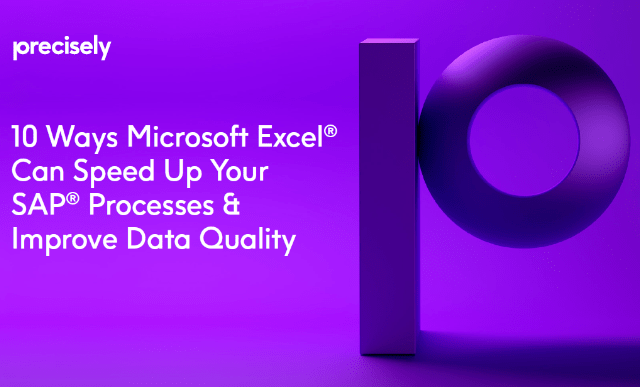Data Quality Matters
Strong Data Management Is Essential for the Extended Supply Chain
Developing an extended supply chain is more than just a trend; it’s a requirement for surviving in the digital age. By embracing the extended supply chain model, companies can obtain visibility into everything from raw materials to production to the final sale (see Figure 1). This heightened visibility, enabled in part by improved data management, leads to greater supply chain efficiency and, ultimately, high customer satisfaction. As digital trends push the pace of business forward, companies across many industries are recognizing the benefits of switching from a traditional cost-driven supply chain to a value-driven extended supply chain.

Overcoming Supply Chain Complexity
Supply chain managers need to be able to access information along every step of the value chain. This is increasingly challenging due to growing complexity and constraints in the global market. Many supply chain processes, for example, have increased in volume over the last ten years. An average company is currently outsourcing 32% of its manufacturing processes and 48% of logistics. Manufacturers must also satisfy both customers who want smaller and more frequent shipments as well as regulators who are adding additional production requirements, such as carbon footprint regulations or labor laws.
Strong data management is more essential than ever in the extended supply chain model, and organizations must ensure that all data going into or out of the supply chain is clean and accurate. If bad data is going in and out of your systems, it will hinder the supply chain process and result in a negative impact on the business.
A Foundation of Strong Data Management
One of the foundational pillars of the extended supply chain is the ability of ERP systems, including SAP solutions, to talk to each other. This means all data, including that of vendors, customers, and third-party service providers, needs to be accurate and complete. When organizations are working with poor quality data, processes are prone to errors and time-consuming rework.
Supply chain data management solutions, like those offered by Winshuttle (now Precisely), allow companies to validate data before posting it to SAP systems for vendor master data entry, warehouse activities, production operations, and transportation. These solutions also allow supply chain managers to automate mass changes to other supply chain records. Because supply chain processes are built iteratively in short cycle times, these data management tools can be used to resolve the most pressing issues immediately and implement continuous improvements as business processes evolve.
Learn More
Precisely’s solution for supply chain data management allows supply chain professionals to easily maintain high-quality SAP data through automation and validation, while applying continuous improvements to SCM processes. With this greater efficiency and visibility, organizations can increase the service level of their SCM processes, therefore freeing up time for more value-added and strategic activities. To find out how you can start creating a successful extended supply chain, visit precisely.com.






